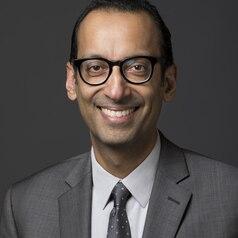
Alnoor Ebrahim
Professor of Management, Tufts University
Alnoor Ebrahim is a Professor of Management at The Fletcher School, and the Tisch College of Civic Life, at Tufts University. His research addresses several core dilemmas of social change facing businesses, nonprofit organizations, and public agencies: What strategies should they adopt for delivering and scaling social change? How can they best measure and improve their impacts? How should they design their governance and accountability? How can they influence “system” problems such as global poverty that require collective action?
Many of these questions are addressed in Professor Ebrahim’s book, Measuring Social Change: Performance and Accountability in a Complex World (Stanford University Press), which has received multiple awards, including from the Financial Times and Impact & Sustainable Finance Faculty Consortium, and The Alliance for Nonprofit Management. He is also author of the award-winning NGOs and Organizational Change: Discourse, Reporting, and Learning and is co-editor of Global Accountabilities: Participation, Pluralism, and Public Ethics (both with Cambridge University Press).
Alnoor serves on advisory boards to the Stanford Social Innovation Review (SSIR) and the World Bank's Global Partnership for Social Accountability (GPSA). He previously served on an advisory board to IRIS+ at the Global Impact Investing Network (GIIN), a working group established by the G7 to create global guidelines on social impact measurement, on Acumen’s Lean Data advisory council, and on the board of Imago Global Grassroots. He has also worked with the NGO Leaders Forum, an annual gathering of CEOs of large humanitarian development organizations. His previous research on accountability mechanisms within the World Bank led to a Congressional Testimony on improving the Bank’s information disclosure policy.
Professor Ebrahim teaches courses on leadership and strategy, and in executive programs at Fletcher, Harvard, and Georgetown. Prior to joining the Fletcher faculty, he taught at Harvard Business School, where he chaired two executive programs for social sector leaders, and also at Virginia Tech. Professor Ebrahim received his doctorate and master’s degrees from Stanford University, and his bachelor of science from M.I.T.
Less ![]()

Alon Loeffler
PhD researcher, University of Sydney
I'm a neuromorphic engineer with a PhD from the University of Sydney. I have 3+ years experience in designing AI learning tasks and algorithms for neuro-inspired systems.
My main research focus is on the interplay between structure and function in neuro-memristive nanowire networks. I also have degrees in psychology (with a computer science minor) and philosophy, as well as a First-Class honours in neuroscience.
My interests lie at the intersection of psychology, neuroscience, nanotechnology and philosophy; in areas such as brain-computer interface, neuroengineering and neuromorphics.
Less ![]()
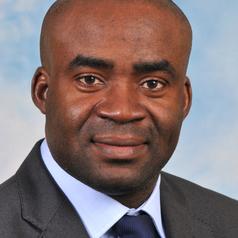
Aloysius Igboekwu
Senior Lecturer in Finance, Aberystwyth University
Dr Aloysius Igboekwu is a Senior Lecturer in Finance at Aberystwyth University. His research interests are in the areas of Behavioural Finance, Market-based Accounting, Capital Markets, International Financial Economics, AI Ethics, and Banking. He is research-active and has publications in international journals such the Review of Quantitative Finance and Accounting. Aloysius has presented his research works in a number of international conferences such as the European Financial Management Association and the British Accounting and Finance Association. He is a reviewer for the Journal of Risk Finance, Finance Research Letters and Review of Behavioral Finance. Also, he is a guest editor for the Qualitative Research in Financial Markets journal.
Aloysius is currently working on a series of applications of Gerd Gigerenzer’s concept of “fast and frugal reasoning” within financial markets. Aloysius is a co-author of the book entitled "A Fast and Frugal Finance: Bridging Contemporary Behavioral Finance and Ecological Rationality"
Aloysius teaches modules in Investments, Corporate Finance, Financial Theory, Banking, Financial Markets and Institutions. Previously, he taught modules in Business Economics as well as Mathematics and Quantitative Methods for Business and Social Sciences.
Less ![]()
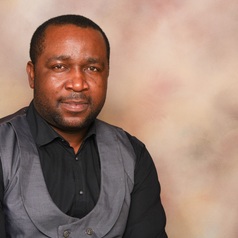
Aloysius Nwabugo Maduforo
Research Manager, Department of Community Health Sciences, University of Calgary
Dr. Aloysius N. Maduforo, Ph.D. (Nutrition), M.Sc. (Dietetics), B.Sc.(Nutr & Diet). Research Manager, Department of Community Health Sciences, University of Calgary, Alberta Canada.
Less ![]()
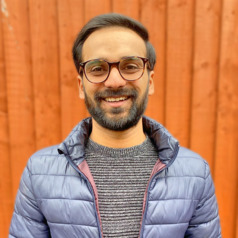
Alpesh Bhudia
Doctoral Researcher in Cyber Security, Royal Holloway University of London
Alpesh Bhudia is a Doctoral candidate at the EPSRC Centre for Doctoral Training in Cyber-Security for the Everyday, Information Security Group, Royal Holloway University of London.
His research focuses on exploitation of security flaws and design-time assumptions by extortionware and ransomware, and the remediation of those issues. His early work focused on leveraging secure enclaves (SGX) to protect ransomware keys from anti-ransomware software (e.g., Paybreak), in the interest of highlighting the lack of depth in contemporary anti-ransomware approaches [1][2]. This has since evolved into a body of work that includes Proof-of-Stake validators (staking pool operators/investors) as potential targets for next generation ransomware. His research interests include trusted execution environments, user security, ransomware, cyber extortion, and decentralised systems modelling to identify novel exploits and develop countermeasures.
[1] https://www.crowdstrike.com/blog/playing-hide-and-seek-with-ransomware-part-1/
[2] https://therecord.media/ransomclave-project-uses-intel-sgx-enclaves-for-ransomware-attacks/
Less ![]()
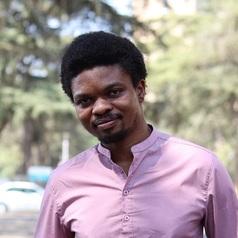
Alseno Kagiso Mosai
Lecturer and Researcher in the Chemistry Department, University of Pretoria
Research Interests:
Development and designing of adsorption materials for the recovery of metals and non-metals from wastewater. Materials characterization using fourier transform infrared spectroscopy (FT-IR), powder X-Ray diffraction (PXRD), transmission electron microscopy (TEM) and scanning electron microscopy (SEM). Hydrogeochemical characterisation and modelling of landfill leachates and mine dumps using various modelling techniques including: speciation-solubility modelling; geochemical reaction modelling; reactive transport modelling, parameter estimation (PEST) and chemometrics modelling. Water remediation processes, gold, uranium, platinum group metals and rare earth metals recovery, acid mine drainage, surface and groundwater pollution, leaching, materials science, environmental engineering, soil pollution, radioactive elements removal from aqueous solutions. Computational skills with PHREEQC geochemical modelling (simulation and prediction), PHAST, PEST and R coding language. Analysis of samples using ICP-OES, ICP-MS and ion chromatography. Using R software for statistical confirmations.
Journal articles:
Mosai, A. K., & Tutu, H. (2022). Recovery of platinum (IV) from aqueous solutions using 3-aminopropyl (diethoxy) methylsilane functionalized bentonite. Journal of Dispersion Science and Technology, 43(7), 1016-1027. Contribution: lead author, conducted experimental work and data modelling. https://doi.org/10.1007/s11270-022-05642-5
Mosai, A. K., Johnson, R. H., & Tutu, H. (2022). Modelled and Measured Adsorption of Rare Earth Elements onto Bentonite with Various Geochemical Conditions Using a Generalised Surface Complexation Approach. Water, Air, & Soil Pollution, 233(6), 194. Contribution: lead author, conducted experimental work and data modelling. https://doi.org/10.1007/s11270-022-05642-5
Mosai, A. K., & Tutu, H. (2022). Adsorption of platinum group elements (Pd (II), Ir (III) and Rh (III)) from aqueous solutions using 3-aminopropyl (diethoxy) methylsilane (APDEMS) functionalised bentonite. Minerals Engineering, 176, 107342. Contribution: lead author, conducted experimental work and data modelling. https://doi.org/10.1016/j.mineng.2021.107342
Mosai, A. K., Tokwana, B. C., & Tutu, H. (2022). Computer simulation modelling of the simultaneous adsorption of Cd, Cu and Cr from aqueous solutions by agricultural clay soil: A PHREEQC geochemical modelling code coupled to parameter estimation (PEST) study. Ecological Modelling, 465, 109872. Contribution: lead author, conducted experimental work and data modelling. https://doi.org/10.1016/j.ecolmodel.2022.109872
Mosai, A. K., Chimuka, L., Cukrowska, E. M., Kotzé, I. A., & Tutu, H. (2021). Batch and flow-through column adsorption study: recovery of Pt 4+ from aqueous solutions by 3-aminopropyl (diethoxy) methylsilane functionalised zeolite (APDEMSFZ). Environment, Development and Sustainability, 23, 7041-7062. Contribution: lead author, conducted experimental work and data modelling. https://doi.org/10.1007/s10668-020-00903-x
Etale, A., Nhlane, D. S., Mosai, A. K., Mhlongo, J., Khan, A., Rumbold, K., & Nuapia, Y. B. (2021). Synthesis and application of cationised cellulose for removal of Cr (VI) from acid mine-drainage contaminated water. AAS Open Research, 4. Contribution: lead author, conducted experimental work and data modelling. doi:10.12688/aasopenres.13182.1
Mosai, A. K., Chimuka, L., Cukrowska, E. M., Kotzé, I. A., & Tutu, H. (2021). Recovery of Pt (IV) from aqueous solutions by spent brewer's yeast‐functionalized zeolite (SBYFZ): A batch and column study. Environmental Progress & Sustainable Energy, 40(1), e13481. Contribution: lead author, conducted experimental work and data modelling. https://doi.org/10.1002/ep.13481
Mosai, A. K. (2021). Simultaneous recovery of Pd (II), Ir (III) and Rh (III) from aqueous solutions by spent brewer’s yeast-functionalised zeolite using flow-through column mode. Minerals Engineering, 163, 106770. Contribution: author, conducted experimental work and data modelling. https://doi.org/10.1016/j.mineng.2020.106770
Mosai, A. K., & Tutu, H. (2021). Simultaneous sorption of rare earth elements (including scandium and yttrium) from aqueous solutions using zeolite clinoptilolite: A column and speciation study. Minerals Engineering, 161, 106740. Contribution: author, conducted experimental work and data modelling. https://doi.org/10.1016/j.mineng.2020.106740
Mosai, A. K., Chimuka, L., Cukrowska, E. M., Kotzé, I. A., & Tutu, H. (2020). Removal of platinum (IV) from aqueous solutions with yeast-functionalised bentonite. Chemosphere, 239, 124768. Contribution: lead author, conducted experimental work and data modelling. https://doi.org/10.1016/j.chemosphere.2019.124768
Mosai, A. K., Chimuka, L., Cukrowska, E. M., Kotzé, I. A., & Tutu, H. (2020). Recovery of Pd (II), Ir (III) and Rh (III) from aqueous solutions with Brewer’s Yeast-functionalised bentonite. Minerals Engineering, 145, 106101. Contribution: lead author, conducted experimental work and data modelling. https://doi.org/10.1016/j.mineng.2019.106101
Mosai, A. K., Johnson, R. H., & Tutu, H. (2020). Modelling of palladium (II) adsorption onto amine-functionalised zeolite using a generalised surface complexation approach. Journal of Environmental Management, 277, 111416. Contribution: lead author, conducted experimental work and data modelling. https://doi.org/10.1007/s11270-022-05642-5
Mosai, A. K., & Tutu, H. (2020). Recovery of platinum (IV) from aqueous solutions using 3-aminopropyl (diethoxy) methylsilane functionalized bentonite. Journal of Dispersion Science and Technology, 1-12. Contribution: lead author, conducted experimental work and data modelling.
Erdogan, Innocentia Guguletho; Mosai, Alseno; Ntwampe, Seteno Karabo Obed; Fosso-Kankeu, Elvis; Waanders, Frans B. (2020): Geochemical modelling of groundwater in the Namaqualand region, South Africa. Cape Peninsula University of Technology. Dataset. https://doi.org/10.25381/cput.12820505.v1
Netshiongolwe, K., Mhlana, Y., Mosai, A., Richards, H., Chimuka, L., Cukrowska, E., & Tutu, H. (2020). Recovery of Ochers from Acid Mine Drainage Treatment: A Geochemical Modeling and Experimental Approach. Recovery of Byproducts from Acid Mine Drainage Treatment, 157-187. Contribution: co-author, co-supervisor of Honours project, conducted some of the experimental work and some of the data modelling. https://doi.org/10.1002/9781119620204.ch6
Mosai, A. K., Chimuka, L., Cukrowska, E. M., Kotzé, I. A., & Tutu, H. (2019). The recovery of Platinum (IV) from aqueous solutions by hydrazine-functionalised zeolite. Minerals Engineering, 131, 304-312. Contribution: lead author, conducted experimental work and data modelling. https://doi.org/10.1007/s11270-019-4236-4
Mosai, A. K., Chimuka, L., Cukrowska, E. M., Kotzé, I. A., & Tutu, H. (2019). The recovery of rare earth elements (REEs) from aqueous solutions using natural zeolite and Bentonite. Water, Air, & Soil Pollution, 230(8), 188. Contribution: lead author, conducted experimental work and data modelling. https://doi.org/10.1007/s11270-019-4236-4
Mosai, Alseno K., and Hlanganani Tutu. "Modeling of sorption and transport of cadmium, copper and chromium on an agricultural soil impacted by mining activities." Environmental Progress & Sustainable Energy 37.6 (2018): 2063-2072. Contribution: lead author, conducted experimental work and data modelling. https://doi.org/10.1007/s11270-019-4236-4
Mosai, A. K., and H. Tutu. "The effect of crop exudates and EDTA on cadmium adsorption by agricultural podsolic soil: implications on groundwater." International Journal of Environmental Science and Technology (2018): 1-10. Contribution: lead author, conducted experimental work and data modelling. https://doi.org/10.1007/s13762-018-1927-0
Mosai, Alseno K., Elisee N. Bakatula, and Hlanganani Tutu. "Adsorption of Cadmium, Copper and Chromium by an Agricultural Soil Impacted by Mining Activities." Water, Air, & Soil Pollution 228.8 (2017): 287. Contribution: lead author, conducted experimental work and data modelling. https://doi.org/10.1007/s11270-019-4236-4
Bakatula, Elisée N., Alseno K. Mosai, and Hlanganani Tutu. "Removal of uranium from aqueous solutions using ammonium-modified zeolite." South African Journal of Chemistry 68.1 (2015): 165-171. Contribution: co-author, wrote the first draft of paper, conducted experimental work and some of the data modelling. DOI: 10.17159/0379-4350/2015/v68a23
Conference proceedings:
Mosai, A. K., Richards, H., & Tutu, H. (2022) Modelling The Transport Of Pollutants From Mine Dump And Landfill Sites To Groundwater And Surface Water. IMWA 2022 Conference, Reconnect, 6 – 10 November 2022, New Zealand, International Mine Water (IMWA), Contribution: lead author, conducted experimental work and data modelling. Contribution: lead author, conducted experimental work and data modelling.
5. Mphahlele, M. R., Mosai, A. K., Tutu, H., & Kotzé, I. A. Recovery of Pt and Pd From Aqueous Solutions by N, N-di (trimethoxysilylpropyl)-N’-benzoylthiourea Modified Silica Gel. adsorption, 100, 1. IMWA 2022 Conference, Reconnect, 6 – 10 November 2022, New Zealand, International Mine Water (IMWA), Contribution: lead author, conducted experimental work and data modelling. Contribution: co-author, supervisor, conducted some of the experimental work and some of the data modelling.
Erdogan, I.G., Netshiongolwe K., Mosai, A., Fosso-Kankeu, E., Ntwampe, S.K., Waanders, F.B., Hoth, N. 2020. Geochemical modelling data of groundwater in the O’Kiep, Namaqualand region, South Africa – 2013 to 2019: A case of evidenced contamination by historical mining activity.18th International Conference on Science, Engineering, Technology and Waste Management (SETWM-20), Nov. 16-17, Johannesburg, South Africa. Contribution: author, advisor and data modelling. (Available: https://doi.org/10.17758/EARES10.EAP1120218).
Alseno K. Mosai, Luke Chimuka, Ewa M. Cukrowska, Izak A. Kotzé and Hlanganani Tutu (2019). The Recovery Of Pd(II), Ir(III) And Rh(III) From Aqueous Solutions With Yeast-functionalised Zeolite. IMWA 2019 Conference, Mine water: Technological and Ecological Challenges. International Mine Water (IMWA). 15 – 19 July 2019, Perm, Russia. Contribution: lead author, conducted experimental work and data modelling. (Available: https://www.imwa.info/imwaconferencesandcongresses/proceedings/306-proceedings-2019.html).
Alseno K. Mosai, Luke Chimuka, Ewa M. Cukrowska, Izak A. Kotzé and Hlanganani Tutu (2018). The recovery of Pt(IV) from aqueous solutions by APDEMS-functionalised zeolite. 11th ICARD | IMWA | MWD Conference – “Risk to Opportunity", International Mine Water (IMWA). 10 – 14 September 2018, Pretoria, South Africa. Contribution: lead author, conducted experimental work and data modelling. (Available: https://www.imwa.info/imwaconferencesandcongresses/proceedings/303-proceedings-2018.html).
Less ![]()
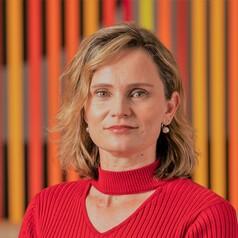
Alta Schutte
SHARP Professor of Cardiovascular Medicine, UNSW Sydney
Alta Schutte is a SHARP Professor of Cardiovascular Medicine and Principal Theme Lead of Cardiac, Vascular and Metabolic Medicine at the University of New South Wales, and The George Institute for Global Health in Sydney, Australia. She is also Honorary Professor at the University of the Witwatersrand and the North-West University, South Africa.
Alta’s research interest is the early detection, prevention and effective management of high blood pressure, where she has led many population and clinical studies. In 2008 she was the Founding Director of the Hypertension in Africa Research Team (HART) and established the Medical Research Council Unit for Hypertension and Cardiovascular Disease in South Africa in 2015. She served as President of the Southern African Hypertension Society from 2014 to 2016. Since relocating to Australia in 2020 she leads clinical trials and major projects focused on improved blood pressure monitoring and blood pressure control.
Alta is an invited author of the Lancet Commission on Hypertension, and of the World Health Organization’s Technical Specifications Report for Automated Non-Invasive Blood Pressure Measuring Devices. She is an Executive Board member of STRIDE BP, an international scientific non-profit organization with the mission of improving the accuracy of blood pressure measurement and diagnosis of hypertension. Since 2017 she contributed to the establishment of May Measurement Month and continues to contribute to the global awareness campaign as a Trustee.
She was President of the International Society of Hypertension (2018-2020) during which time she initiated the development of the 2020 ISH Global Hypertension Practice Guidelines for low and high resource settings. She is co-Chair of the National Hypertension Taskforce of Australia (2022 -).
Alta has contributed to over >450 publications in the field of hypertension and ranks in the top 0.019% of 250,197 authors in the field ‘blood pressure (BP)’ (Expertscape). Alta is associated Editor of Hypertension, and editorial board member of all major hypertension journals.
Less ![]()

Altin Gjeta
PhD Candidate in Political Science and International Studies, University of Birmingham
Altin is a doctoral researcher in political science and international studies at University of Birmingham. His research focuses on peace and statehood in ethnically divided societies, with a particular interest in the Balkans.
Altin completed his BA in History and a Master of Science in International Relations at University of Tirana, Albania. He then went into the private sector, and founded and managed a Foreign Languages Institute for 6 years. In 2018 he was awarded by the British Government, the Chevening scholarship, to pursue a taught masters in the UK. In 2019 he earned an MA with distinction in International Relations and Democratic Politics from University of Westminster, London.
Since then, he has worked as consultant and researcher for national and international organisations in Albania, including OSCE, Konrad Adenaur Foundation and National Democratic Institute. Most recently he has worked as Programme Coordinator at Westminster Foundation for Democracy in Albania. His opinion articles on Albanian politics, statebuilding in Kosovo, EU enlargement, and security related issues in the Balkans have been published in Albanian and international media platforms, including Politiko.al, Kosovo 2.0 and Balkan Insight.
Less ![]()

Alton C. Byers
Senior Research Associate, Institute of Arctic and Alpine Research, University of Colorado Boulder
Alton C. Byers is a mountain geographer, conservationist, and mountaineer specializing in applied research, high altitude ecosystems, glacier hazards, and implementation of integrated conservation and development programs in the Himalayas, Andes, and East African Highlands. He has published widely on a range of scientific and popular topics, and is an author and co-editor of Mountain Geography: Human and Physical Dimensions (University of California Press at Berkeley, 2013).
Following receipt of his PhD from the Department of Geography at CU Boulder in 1987, he accepted a two-year position as Co-Manager of the Ruhengeri Resource Analysis and Management (RRAM) project in Ruhengeri Prefecture, Rwanda, volunteering as Scientific Advisor to the late Dian Fossey’s Karasoke Research Center. Following this he was hired by the then-Woodlands Mountain Institute to assist in the design, fundraising, and co-management of the new Makalu-Barun National Park and Conservation Area in eastern Nepal, where he lived for two years (1993-95) in a Nepali village with his young family. Upon his return to the U.S. in 1995, he established, funded, and worked as Director of the Andean Program with a base of operations in the Cordillera Blanca of Peru, turning the program over to a Peruvian national in 1997 who has managed the project ever since. This period of his career corresponded with a growing interest in alpine conservation and restoration, particularly in tourist-impacted regions of the Himalayas and Andes, where he combined applied research with community awareness building to form several local Alpine Conservation Councils in Nepal and Peru that remain effective to this day. He became Director of Appalachian Programs in 1998, developing a range of local conservation, mountain education, and teacher training programs, including the School for Mountain Studies that regularly took undergraduates on field courses to the Mt. Everest region of Nepal and Cordilleras Blanca and Huayhuash in Peru.
In the 2000s, Byers added climate change impacts on high mountain environments to his ongoing portfolio of alpine research and conservation, landscape change, and glacial lake management and risk reduction interests, funding and hosting three international, field-based climate change workshops in Nepal and Peru between 2009 and 2013. The High Mountains Adaptation Partnership (HiMAP), that he has co-managed since 2012 with the University of Texas at Austin, has been a particular highlight in his career, where he developed approaches to integrating results from HiMAP glacial lake rapid reconnaissance research into the local adaptation plan of action (LAPA) process. After 25 years at TMI of project implementation, applied research, cross-programmatic and institutional fundraising, he left TMI in April 2015 to pursue a range of writing, research, and high mountain projects and initiatives, and currently serves as Senior Research Associate at INSTAAR.
Less ![]()
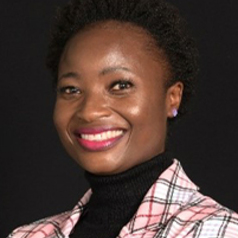
Aluwani Maiwashe-Tagwi
Associate Professor of Agricultural Economics, University of South Africa
Prof Tagwi has a PhD in Agricultural Economics. Her expertise is in:
-Just energy transition
-Energy economics
-Energy poverty and efficiency
-Agricultural waste markets
Prof Tagwi's fields of academic interests are:
-Renewable energy and agri-food systems
-Trade and energy
-Machine learning and energy
-Energy auditing
-Agricultural green markets value chain
-Life cycle assessment (LCA) in agriculture.
Less ![]()
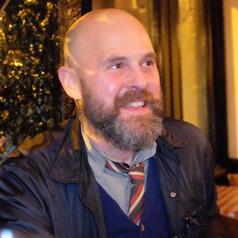
Alva Noë
Professor of Philosophy, University of California, Berkeley
Alva Noë is a writer and a philosopher living in Berkeley and New York. He works on the nature of mind and human experience. He is the author of "Action in Perception" (MIT Press, 2004); "Out of Our Heads: Why You Are Not Your Brain and Other Lessons from the Biology of Consciousness" (Farrar Straus and Giroux, 2009); "Varieties of Presence" (Harvard University Press, 2012); "Strange Tools: Art and Human Nature" (Farrar Strauss and Giroux, 2015); and "Infinite Baseball: Notes from a Philosopher at the Ballpark" (Oxford University Press, 2019). His latest book is "Learning To Look: Dispatches from the Art World" (Oxford, 2022).
Alva received his Ph.D. from Harvard in 1995 and is a professor of philosophy at the University of California, Berkeley, where he is also a member of the Institute for Cognitive and Brain Sciences and the Center for New Media. He previously was a Distinguished Professor of Philosophy at the Graduate Center of the City University of New York. He has been philosopher-in-residence with The Forsythe Company and has also collaborated creatively with dance artists Deborah Hay, Nicole Peisl, Jess Curtis, Claire Cunningham, Katye Coe, and Charlie Morrissey. Alva is a 2012 recipient of a Guggenheim fellowship and a former fellow of the Wissenschaftskolleg zu Berlin. He is a 2018 recipient of the Judd/Hume Prize in Advanced Visual Studies. He was a weekly contributor to National Public Radio’s now defunct science blog 13.7: Cosmos and Culture. Until 2025 Alva is an Einstein Visiting Fellow at the Free University in Berlin, where he is the director of the Reorganizing Ourselves research group.
Less ![]()
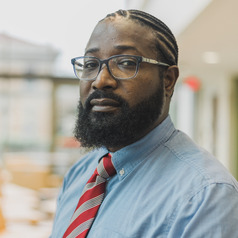
Alvin Thomas
Assistant Professor, Phyllis Northway Faculty Fellow, University of Wisconsin-Madison
Alvin Thomas, PhD, is an Assistant Professor of Human Development and Family Studies and the Phyllis Northway Faculty Fellow at the School of Human Ecology at the University of Wisconsin-Madison. He is a clinical psychologist and the founder and host of the Black Fatherhood Podcast. Dr. Thomas' research explores positive youth development and father involvement especially among Black families.
Less ![]()
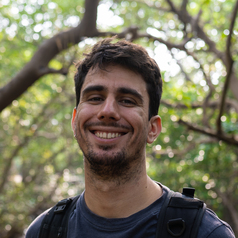
Alvise Dabalà
Research associate, The University of Queensland
I am a marine research scientist with a particular interest in mangroves.
Less ![]()
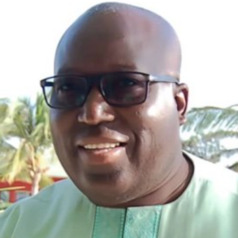
Aly Tandian
enseignant-chercheur, Université Gaston Berger
Aly Tandian est enseignant-chercheur au département de sociologie de l’Université Gaston Berger de Saint-Louis et directeur du Groupe d’études et de recherches sur les migrations et faits de sociétés (GERM).
Less ![]()

Alyson Crozier
Senior Lecturer, Exercise and Sport Psychology, University of South Australia
Alyson is a Senior Lecturer in Sport & Exercise Psychology at the University of South Australia. She is passionate about all things physical activity and sport-related, and specialises in the area of group dynamics and social influence. Her research spans topics like group cohesion, the home advantage, social norms, and mental wellbeing in athletes.
Less ![]()
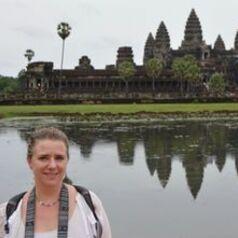
Alyssa Beall
Teaching Assistant Professor of Religious Studies, Humanities, and Philosophy, West Virginia University
Alyssa Beall received her PhD in Religion from Syracuse University in 2010. She is currently a Teaching Assistant Professor in the Programs for Religious Studies and Humanities in the Department of Philosophy at West Virginia University. Her teaching and research centers on Religion, Ethics, and Popular Culture, particularly how media sources both impact and reflect our actions in society.
Less ![]()

Alyssa Choat
Lecturer in Fashion and Textiles Design, University of Technology Sydney
Alyssa Choat is a Lecturer in Fashion and Textiles Design. In her research she has developed interdisciplinary projects of image-based works, wearable items, sculpture works, as well as performance projects in collaboration with practitioners and performers. Her research explores forms material agency through creative practice and draws attention to the relational aspects of body and material engagements, inherent to the dressed body in fashion, drawing on new materialist theory. Alyssa has presented her research locally and internationally including Critical Costume Conference, Aalto University, Helsinki and International Foundation of Fashion Technology Institutes Conference, Florence. She has created several public performances as part of nationwide creative events and exhibited works.
Less ![]()
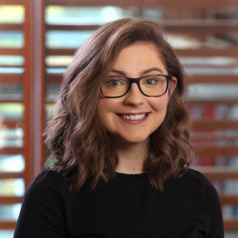
Alyssa Grocutt
PhD Candidate in Organizational Behaviour, researching workplace safety, at Smith School of Business, Queen's University, Ontario
I am a PhD Candidate at Smith School of Business, Queen's University. My research focuses on workplace safety, particularly the consequences of work injuries and fatalities for family members, coworkers, and leaders. My father was killed in a workplace incident when she was 11 years old which has driven my interest and passion in my research topic.
Less ![]()
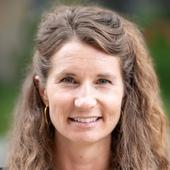
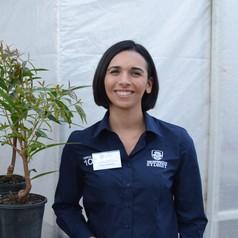
Alyssa Martino
PhD Candidate , University of Sydney
Bachelor of Science majoring in Agricultural Science and Genetics - Graduated UWA 2019
Bachelor of Science (Honours - First Class) in Biochemistry - Graduated USyd 2020
PhD - Molecular Plant Pathology - Currently at USyd
Less ![]()


Alyssa Weeks
Research Assistant, International Development Studies, Dalhousie University
MA International Development Studies. Research Assistant. Research focuses on the experiences of migrant workers employed through the TFWP in the Maritime provinces, and improving conditions to better protect and support migrant workers in this region.
Less ![]()
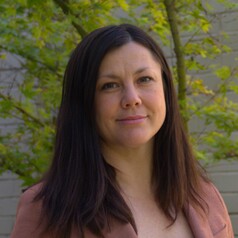
Alyssa Clare Milton
Senior Research Fellow, University of Sydney
To help people achieve optimal mental health and wellbeing across their lifespan, Dr Milton's focus is on working with communities to co-produce child, youth and adult mental health and wellbeing programs using participatory design and evaluation methodologies. The goal is to make face-to-face and digital programs more meaningful to the people who use them.
Dr Milton is a Psychologist, a Researcher Fellow at The University of Sydney’s Faculty of Medicine & Health and the Deputy Director of the People Program for the ARC Centre of Excellence for Children and Families over the Life Course. Dr Milton is a scientific advisor for multiple non-government organisations such as SANE Australia and the Raise Foundation, has founded and directs an Australia-wide Qualitative Research Network. Dr Milton has worked for two decades across academic and senior management roles in the mental health sector in Australia and the UK. She was a Principal Research Associate/Senior Research Clinician and lecturer for University College London (UCL) where she advised on, and implemented, interventions delivered across NHS mental health services.
Less ![]()
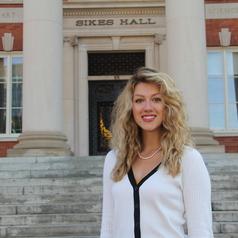
Alyssa J. Davis
PhD Student in Sociology, Vanderbilt University
Alyssa Davis received her B.A. in Psychology from Clemson University in 2020, and her M.A. in Social Sciences from Clemson University in 2022. Her research interests include gender, sexuality, masculinity, sexual assault, and online social movements. Her master’s thesis focused on analyzing an online, predominately male, hate group and their constructions of masculinity and masculine power. Additional projects Alyssa has been on have analyzed Reddit comments in response to Drag Queen Story Hour, evaluated of the effectiveness of SAMFEs in sexual assault cause outcomes, and studied constructions of sexual consent online.
Less ![]()

Alyssa K Gerhardt
PhD Candidate, Department of Sociology and Social Anthropology, Dalhousie University
Alyssa Gerhardt is a PhD Candidate in the Department of Sociology and Social Anthropology at Dalhousie University. She is a mixed method researcher specializing in Economic Sociology. Her research examines the everyday experiences of people living with personal debt, and considers how debt is a factor shaping experiences of social inequality.
Less ![]()
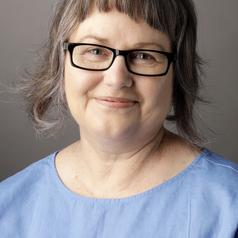
Alysson Watson
Associate lecturer in journalism, University of Newcastle
Alysson Watson is a former journalist and media advisor who teaches journalism and public affairs at the University of Newcastle. For her PhD she is researching the 'death knock' practice of Australian print and digital journalists.
Less ![]()

Amadou Ghouenzen Mfondi
Chargé de cours et chercheur en études des conflits, Université Saint-Paul / Saint Paul University
Amadou Ghouenzen Mfondi a un doctorat en études de conflits à l'Université Saint-Paul, à Ottawa au Canada. Il est chargé de cours. Ses recherches portent sur les conflits identitaires, les politiques d'identité et le processus de paix et de résolution de conflits dans les sociétés nationales soumises à des dynamiques de fragmentation.
Less ![]()

Amaia Calderón-Larrañaga
Associate Professor at the Aging Research Center, Karolinska Institutet
Less ![]()


Amal Elamin
Senior Lecturer in Public Health, University of Greenwich
Dr. Amal Elamin is a dentist and oral health expert who earned her PhD from the University of Bergen, Norway. With a wealth of experience, Dr. Elamin serves as a Senior Lecturer in Public Health at the University of Greenwich since 2022. She brings valuable expertise from their previous role as an Assistant Professor in Public Health at Zayed University in Abu Dhabi, United Arab Emirates.
Within the University of Greenwich, Dr. Elamin teaches various undergraduate and postgraduate modules. She covers a range of subjects, including global health, health policy, health economics at the undergraduate level, and health management and global health in the postgraduate programs.
Dr. Elamin's primary research focus lies in evidence-based dentistry, encompassing the exploration of oral health determinants, the evaluation of global attributes related to dental caries and periodontal diseases, and the application of evidence-based dentistry in informing policy-making processes.
Dr. Elamin expertise also extends to investigating oral microbiological aspects, specifically studying intra-species phylogenetic differences and identifying virulent pathogenic clones associated with periodontal diseases.
Less ![]()
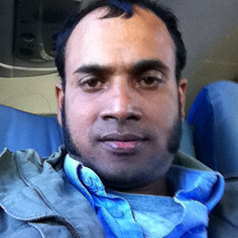
Amalendu Misra
My current preoccupation concerns interrogation of violence in the political process. There are three interrelated intellectual queries I am pursuing while using violence as the abiding theme. The first one examines the Politics of Sexual Violence in Armed Conflicts. The second one evaluates the Role of Violence in the Sacred. And the third one explores ways of Managing Violence in Post-Conflict Societies.
My other subsidiary research interests are: ethno-politics; conservative nationalism; religious radicalism; and peace-building in deeply divided societies.
Less ![]()
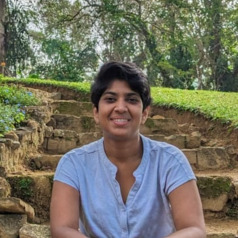
Amali Cooray
PhD Candidate in Genetic Engineering and Cancer, WEHI (Walter and Eliza Hall Institute of Medical Research)
Amali Cooray is a final year PhD candidate at the Walter and Eliza Hall Institute. Her research focuses on using advanced gene engineering techniques (CRISPR) and bioinformatic tools to identify tumour promoting genes in blood cancers. She has given scientific talks, tours and demonstrations to students, donors, and members of the public, and believes science should be accessible to everyone.
Less ![]()
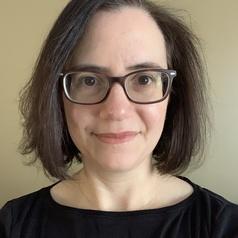

Aman Agrawal
Postdoctoral Scholar in Chemical Engineering, University of Chicago Pritzker School of Molecular Engineering
Aman Agrawal started his postdoctoral research at UChicago in Fall 2023, co-advised by Profs. Matthew Tirrell (PME) and Jack Szostak (Chemistry). He received his PhD in Chemical and Biomolecular Engineering from the University of Houston working with Dr. Alamgir Karim. His dissertation research focused on studying polyelectrolyte coacervate droplets out-of-equilibrium where he subjected coacervate colloids to chemical gradients in order to stabilize them against fusion or form complex morphologies (nested droplets and vesicles) and electrical gradients to organize them in pattern or generate internal flow. Prior to this, Aman received his BTech and MTech degrees in Chemical Engineering at Indian Institute of Technology Kanpur. In his master's research, he worked with Prof. Ashutosh Sharma on carbon-metal-oxide hybrid materials for energy storage in batteries and supercapacitors.
Research works: https://scholar.google.com/citations?user=mSjoV3YAAAAJ&hl=en
Less ![]()

Amanda Avery
Lecturer in Nutrition, University of Nottingham
Amanda Avery worked as a community dietitian in Southern Derbyshire for over 22 years, with both a public health remit and as a clinician working in primary care, before moving to Nottingham University in 2009 as a lecturer in Nutrition and Dietetics.
A period of time was spent working in the Public Health department with the remit to develop a local Obesity Strategy. This was developed and launched in 2000 so was very much one of the first local obesity strategies available! During the secondment period there was also the opportunity to explore the feasibility of Primary Care working in partnership with the commercial slimming sector and project managing this piece of research. This became the evidence base for the slimming on referral scheme which is now part of many local weight management pathways across the country. It was also the start of my involvement with Slimming World where I have now worked on a part-time basis for the past 10 years as a Consultant dietitian in weight management. This provides many opportunities to keep totally up-to-date with all the developments in weight management and to be involved in developments within the Company - for example being involved in the development of a programme for teenagers and more recently involvement in a RCT developing an intervention to support appropriate weight management during pregnancy.
Other areas of interest, developed throughout those many years of community work, are community development, infant nutrition - chairing the group involved in the development of a local infant feeding policy (all 4editions), school meals, diabetes management and behaviour change techniques. One of my greatest achievements, (in my eyes), was my involvement in the Change to Cup campaign which has the potential to have a significant influence on nutritional intake. It is great to see that at last more emphasis is being placed on getting nutrition right from a very young age and indeed re-prioritising pregnancy as a key time.
Less ![]()
- Market Data




















